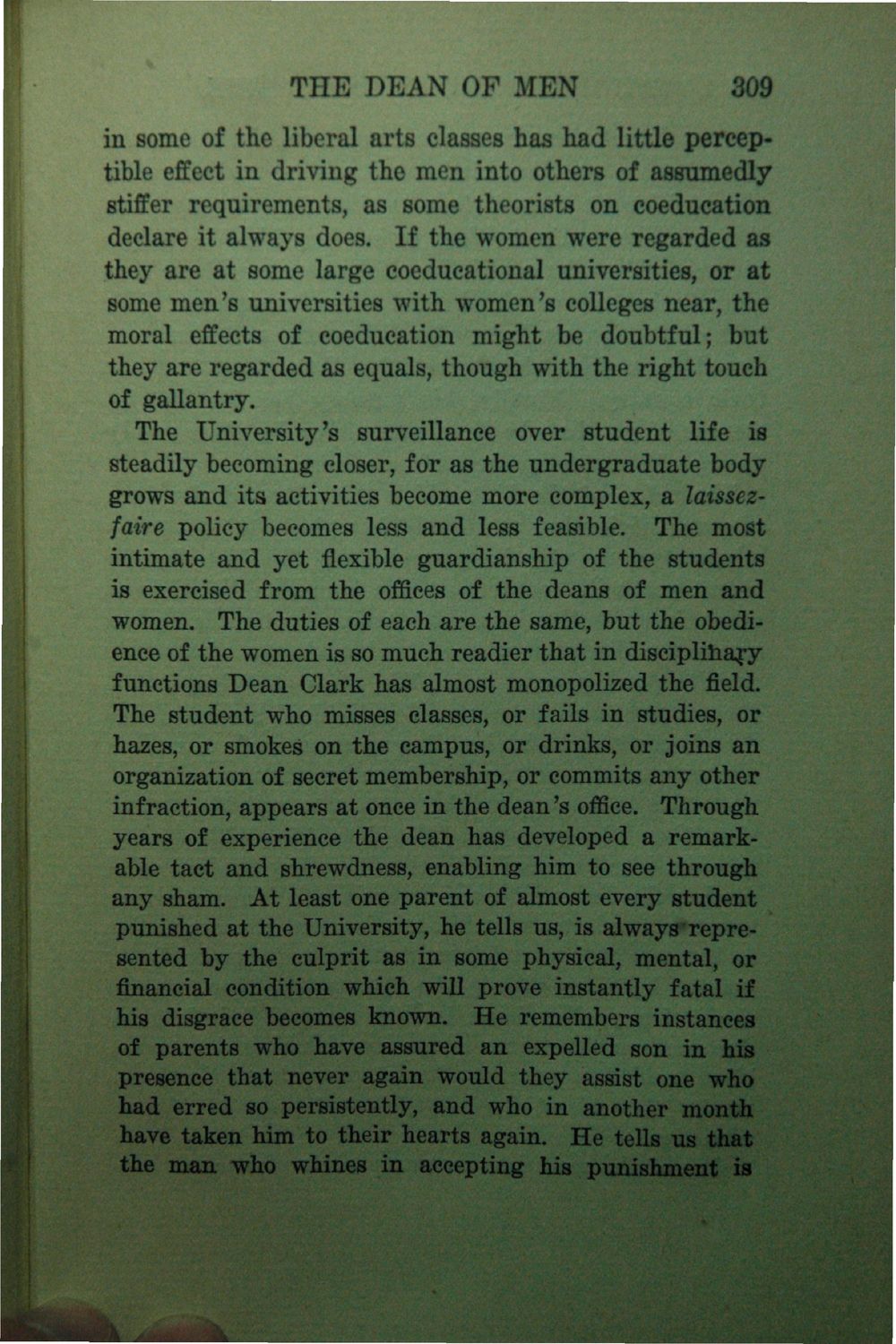| |
| |
Caption: Book - History of the University (Nevins)
This is a reduced-resolution page image for fast online browsing.

EXTRACTED TEXT FROM PAGE:
THE DEAN OF MEN 309 in some of the liberal arts classes has had little perceptible effect in driving the men into others of assumedly staffer requirements, as some theorists on coeducation declare it always does. If the women were regarded as they are at some large coeducational universities, or at some men's universities with women's colleges near, the moral effects of coeducation might be doubtful; but they are regarded as equals, though with the right touch of gallantry. The University's surveillance over student life is steadily becoming closer, for as the undergraduate body grows and its activities become more complex, a laissezfaire policy becomes less and less feasible. The most intimate and yet flexible guardianship of the students is exercised from the offices of the deans of men and women. The duties of each are the same, but the obedience of the women is so much readier that in disciplinary functions Dean Clark has almost monopolized the field. The student who misses classes, or fails in studies, or hazes, or smokes on the campus, or drinks, or joins an organization of secret membership, or commits any other infraction, appears at once in the dean's office. Through years of experience the dean has developed a remarkable tact and shrewdness, enabling him to see through any sham. At least one parent of almost every student punished at the University, he tells us, is alwaysTepresented by the culprit as in some physical, mental, or financial condition which will prove instantly fatal if his disgrace becomes known. He remembers instances of parents who have assured an expelled son in his presence that never again would they assist one who had erred so persistently, and who in another month have taken him to their hearts again. He tells us that the man who whines in accepting his punishment is
| |